If you want to know how to wield words like a finely sharpened sword to use to cut through peoples BS, garner their respect, write a powerful article that gets passed on by virtue of it's powerful way of getting through to people's core of cores, and even crack through the rough exterior of someone whose been hurt by others so many times they are irrationally just not listening to reason anymore, and help them- then read on. I think you'll find this fascinating to say the least!

Building Rapport With Anyone By Design - The Incredible Power Of Language Beneath The Surface
Have you ever wondered how some people seem to have a magical charisma and are able to get along with just about anyone almost instantly? I'm going to show you that it's not magic
 To Quote Raffiki On The Lion King While He Was Telling Simba To Look Into His Reflection "Look Closer...Closer..." |
Language and Rapport Power Tools
In this article I'm hoping to completely blow your mind. I'm going to comprehensively go over language (in the "beneath": The words, Actions, etc... sense). This article is going to give you information and power tools (resources) to use to develop a powerful intuition, focus, and the ability to, in most cases, generate instant rapport with anyone.
What your about to read is my journey, resources, and insights into building what I think is my most powerful and empowering skill-set.
I will cover some important key factors including:
- (briefly) body language
- Thought patterns
- Verbal advantages (Lingo, language)
- Comprehension of how these things develop and are used in today's world.
Root Understanding Of How NOT To Become A Victim Of Other's Cleaver Words
 | Mind Control Language Patterns Mind Control Language Patterns are spoken phrases that can act as “triggers” to the people who hear them. In short, they influence and control how we respond and cause us to ... Only $9.99 |
___________________________________________________________________
I want to give you a powerful look into what true charisma and rapport is and how language can change everything simply by becoming aware of it's inherent power, (and much more).
I want to make one thing clear:
This is not because I try to use big words or because I read a lot of books and learned some lingo used in professional writing (although I started out thinking that was the way to learn) but because I completely understand the power my words, actions, and body language project.
I'm going to share where I started my journey to learn this myself and some of the power tools (like Tarot cards, books, etc...) I used to sharpen my skill set to the degree that my words carry some weight.
Most People Take Lingo For Granted
I have always wanted to know where terms we hear every day or terms we hear once in a while come from.
I don't like to take language for granted i.e. saying things that I have no idea what it really means, where it originated, and what the actual (original) meaning was.
I've come to realize over the years that language is truly a powerful tool in empowerment, self improvement, helping others break out of their shell, or simply to motivate myself or others.
It's fascinating how language works. The power inherent in every word we utter or even just think about, is nuclear if fully understand and projected with intense focus and purpose.
Are You In Full Control Of Your Tongue?
... Or Are You Just Emulating Your Words
I'm amazed by how/why we often just use words that "make sense" in the moment or that somehow have become associated with a term because we saw it defined (perceptively) on TV, when someone said it socially, or that we read somewhere and simply because it sounded "cool" to say.
Most people don't think about this and often times even use things incorrectly- even becoming discredited "silently" by others who don't tell us that they think your trying to be something your not. They do this because often they are no different and don't want to be "outed" by bringing attention to their own words said in ignorance of it's meaning or how to wield it properly.
Do You Plan or Think About What You Say Before You Say it?
Do your words have purpose?
Most people speak or write words not based on a focused purpose, but rather based on an (often) unfocused goal or the wrong goal (i.e. writing to make money without putting much stock in how the words will impact readers).
Many don't ever make a dime when they write for money but it's not that they didn't have a good idea, it's that they didn't focus their attention on PURPOSE and instead pushed more on goals that weren't thought all the way through.
Loosely spouting out words or writing them to share is fine socially (blogs not professional writing, Facebook not reviews or comments with serious intent to affect change, etc...) but if you want to move up in the world or take control of your world, you really have to take root of the fact that language is a very big part of our communication skill set.
Online, in fact, it's our very presence, our resume,  and the most important thing we can do to brand our self (for potential jobs, writing careers, etc...).
and the most important thing we can do to brand our self (for potential jobs, writing careers, etc...).
Most offline and online world bosses are now "Googling" you as part of the pre/post interview process. They are looking for "credibility" and are trying to put together a comprehensive profile on you.
In this sense there is no such thing as "social 'free' time" or "off the clock time" where your words being printed and virally passed around is concerned. This includes videos where you talk, show yourself (body language), and your creative work.
If you put your name on it, it's on an account that in any way (including a comment left where they call you by name), or in any way (tagging?) associated with YOU then they will find it. Some companies create fake profiles just to "bait" you into adding them so they can report back to someone paying them to gather information on you. Be careful who you "friend" as you never know what a strangers true intentions are!
(the good news is there are ways to figure this out with language if you pay attention)
Do You "Use" Your Words or Just Say Them?
Taking language for granted is the fastest way to lose credibility and it really wields you no power in using your words if you're just "using" them like a means to an end instead of throwing power behind them and sculpting them for specific purposes. Choose your words carefully. This is not to say you can't relax, but there is a time to focus and a time to relax.
 Taking your words for granted is like trying to learn karate from watching movies but not studying the moves, theory behind them (energy/chi) and the like.
Taking your words for granted is like trying to learn karate from watching movies but not studying the moves, theory behind them (energy/chi) and the like.
You'll imitate the moves but in reality someone who took the time to learn it fully will kick your gluteus maximus!
Famous public speakers have long held the hearts and minds of those who listen to their message. Their message is not merely thrown together- it's sculpted.
The best writers out there with an avid reader base that passes links back to their articles are not  an accident.They purposefully use their words to their most potent power- because they know what every word they spout means, how to use it both correctly and powerfully, and even what words will convey what they want to say the most punctually but potently.
an accident.They purposefully use their words to their most potent power- because they know what every word they spout means, how to use it both correctly and powerfully, and even what words will convey what they want to say the most punctually but potently.
We rarely question why we say things, we simply say them if they "seem" like the right thing to say or the most potent thing to say to achieve whatever goal we have in mind- often subconsciously.
Adoption Of Words/Termonology By Association
Not The Best Way To Build Your Vocabulary
Often we say words because we like the associated distinction saying them gives others about us, but rarely do we take the time to understand that anyone can say something- it takes someone lucid about what and how they say things to really make an impact- be it in writing, spoken words, or even body language that actually supersedes the words to convey the actual meaning or lack there of!
Language is more than just a way to communicate- it's a way to distinguish one person from another, a group from another group, how to differentiate someone whose "on the level" and someone whose an imposter!
Like an air molecule is pretty inert unless you try to split just one atom it's made of (nuclear explosion) and release it's TRUE power the nuclear power inherent in "lingo", body language, and the very comprehension of all things communication can be passively used or powerfully charged to effect change, action, or a resource to set things in motion to any end.
Rapport building is a very powerful ally to have and this is not something you acquire easily or are born able to wield with conviction.
Even naturally charismatic people have to learn to wield the rapport building skill set. They may be born with charm but it takes skill to use it purposefully. Simply being aware of it can be a very powerful thing in and of itself as it changes how you react to others language/lingo/charm/charismatic advances.
Rapport is being able to get along, to be on the same page, to understand and be understood by others at a very personal level. Charisma uses the utilization of rapport and it can also be the cleaver use of rapport resources.
What Is Rapport?
Here's Wikipedia's Definition:
Rapport is a POWERFUL way to relieve "stranger" anxiety. If you can master "instant rapport" you can instantly make someone feel comfortable around you to the point that they will feel like, somehow, your a member of their realm, their group, and/or their inner circle- even if they realize your not, then you can get along with just about anyone in just about any situation.
Speaking their language shows you're (likely) in a similar world and are far more likely to understand them. It's flattering that you want to be like them. It's not a stand alone concept, there are other variables such as body language, using lingo correctly, and even things like the way you dress, the tone of your voice, speed of your speech, the "vibe" they get from you (which is also generated by their perceptions of your intentions.
They may not realize why but they will feel more comfortable around you and conversation spawning from rapport, starts flowing like a river. Sometimes it just peaks their curiosity, but any way you carve it, your in, at least past the first "outsider" filter.
One Of My Most Powerful Resources
(Let's get the resources I used to learn everything I'm about to talk about here out of the way and get into the juice of this article)
Those that can create instant rapport are seen as charismatic and inspiring but really, they're just wielding the powerful sword of conversational power.
One of the best investments I ever made in learning how words can hypnotize when blended with timing, action, and other variables, (without actually tricking anyone into anything, often called "waking hypnosis") and in acquiring a complete understanding of how words and body language can do some powerful things especially generating instant rapport like magic, is an audio course called "The Secrets of Conversational Hypnosis" By Igor Ledochowski. I downloaded it in MP3 format and it absolutely blew my mind.
The feeling I got in awareness opening up was akin to that scene on that movie "The Matrix" part I where Neo first woke up and had a thousand needles poked in to every part of his body hooked up to micro-electric currents to wake up his muscles from atrophy and Morpheus was standing there,
"The answers are coming neo"
Then he woke up and said :
"why do my eyes hurt?"
to which Morpheus replied:
"Because you've never used them before!"
(see video below if you haven't seen the Matrix or if you want a refresher clip)
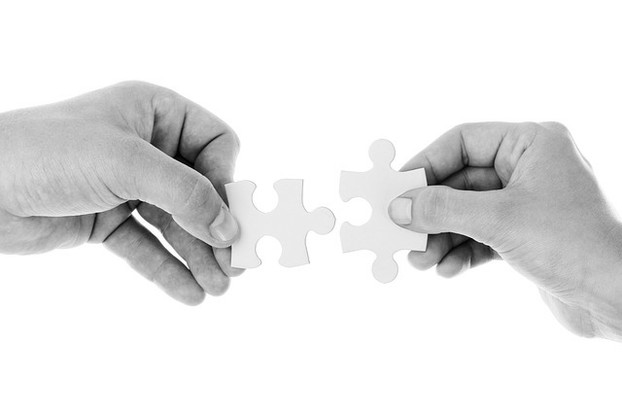 Rapport Is About Knowing The Peices |
My Second Most Powerful Resource
I have read two very powerful books that opened my eyes to the power of words, often stated "the pen is more mighty than the sword" but in the explanation in this article it's less about "competing" or a battle field and more about being able to get along with anyone, gain their trust and comfort enough to spark a stimulating conversation, and to generate what many see as charismatic prowess- working a room effortlessly.
The power the right words to the right person or group has to invoke rapport is powerful. You can walk up to a stranger say one line/sentence, walk away, and can instill deep respect and a curiosity about who you are that is truly infectious (in a good way).
I started my journey to understanding Rapport with Instant Rapport and How To Talk To Anybody About Anything (both I bought for reasons of passing job interviews but they turned out to be amazing insights into rapport building for any situation).
 | How To Talk To Anybody About Anything 3rd ed: Breaking the Ice With Everyone from Accountants ... A former talk show hostess, Lowndes has a special knack for breaking the ice with anyone. Now she details the most appropriate, provocative and specific questions to ask in ... Citadel Only $29.56 |
 | Instant Rapport The national bestseller that shows how anyone can master the proven scientific techniques of neurolinguistic programming (NLP) and forge instant relationships, instant ... Grand Central Publishing Only $15.19 |
Leil Lowndes Opened My Eyes 8 years ago...
I've been practicing ever sense!
In Leil Lowndes's book "how to talk to anyone about anything" she proves this distinction (that language is power) by mapping out the most predominant career fields (as many define who they are by what they do) and listing the "inside lingo" used in each one.
Breaking the ice in any conversation with a stranger is all about "common ground". Language can be a powerful first place to start.
This article isn't a review for that book, although that is the book that opened my eyes to the fact that every group, organization, job, or click has it's own language or more specifically "lingo".
I'll briefly share some of the principals and share some of my experiences since reading and using that reference.
It's not one of those books you read so much as it is a reference like a dictionary of terms that have been focused on specific industries like how doctors, lawyers, dentists, day care providers (or anyone with kids!), and more "talk" or "conversate".
Let's Talk About How Language/Lingo Sets Work
There are, in the latest version of the aforementioned book (Leil's book) about 92 distinctive sections/professions etc... with a long list of words used most frequently.
In any language there are about 500 words used the most (on average). In that set about 300 are "universal" across all languages just spoken in different ways but very similar (common denominator?).
The remaining 200 or so are the "unique" identifiers of a group, personal brand, and/or profession.
Do You Speak Klingon?
Example:
Think of the "Klingon Dictionary" a Star Trek rendition of a real language made up specifically to be used on the show but translated into an entire 500 word language you can actually learn down to how to use verbs, nouns, pronouns, and so on.
Trekkie's world wide have gone out and bought this powerful book (now an audio program) although only a few have been able to master the language- you think German is hard to learn?
This is like trying to learn German, Chinese, and Spanish at the same time!
Personally I've just grabbed a few phrases I wanted to say and used them- so it's not perfect. It's really fun when you go back to some of the older star trek movies, deep space nine episodes, and watch those scenes with Klingon talking to one another and realize they weren't just babbling.
There was a real language there and once you learn Klingon, you will understand what they're saying WITHOUT the subtitles. (source a few of my friends did get through it and told me they were really using the language and when I looked it up in my (yes I bought it) dictionary- it was there!
It doesn't matter when the language is basically made up and in fact the impact is the same since they don't know what your saying anyway!
(it just sounds cool and really sounds like a real language so it works).
If you can get through it and learn, practice, and become proficient at it- you will have mastered a language less than 1000th of 1% of the world even knows a single word of.
This gives you the power to talk in public with VERY little chance that anyone really can decode what your saying! That's powerful. It also illustrates the power of language to instantly build rapport.
Anyone whose gone to a Trekkie convention knows that that 1000th of 1% all tend to show up there. Even though you may not know anyone there- if you can respond in Klingon- your so in with anyone else who can too. Those who can't will still respect you and be wowed by your ability to do it!
Meet The Fockers...
Meeting Your Girlfriend (or Boyfriends for you women) Parents Is A Great Place To Practice/Use The Rapport Building Skill-Set!
My copy of "how to talk to anyone" has a worn spine because I've referenced it so many times when meeting parents of my dates back in the day!
Nothing says your right for his daughter like you speaking his language (good first impression anyway)!
I would do my homework before meeting any parents.
They (different parents mainly when I was in high school) scared the bejezuz out of me a few times and I didn't want to be caught off guard again.
I'd ask my girlfriend what her parents did for a living, what her brothers or sisters interests were and would (in my head) compile this data to use to study the lingo in all those areas.
I came to find this is an amazingly powerful piece of information to have (lingo list) and I would instantly build rapport with different people weaving in and out of different lingo sets (this is normal but often undetected amongst family members, kids talk one way, parents another, younger kids one way, older kids another...
Although all these different language/lingo sets exist within a single family, it's an eco system that works synergistically together because there is a cohesive rapport built due to the amount of time they spend with one another. In a group of people that don't live together this can also happen but it's much harder (nothing is forcing you to compromise and get along but your adoration for each other right?).
Usually this happens with a cohesion factor involved such as common interests beyond your normal life (work environment for example or some common interest that threads various people together into a single lingo set- the group mentality is formed).
It was quite a task to pull off being the new person in the room but with practice and learning the nuances of the various groups you become a master at "Carmelia Lingo Performance". It makes everyone comfortable and to onlookers, your one charismatic person!
This doesn't happen overnight though- I didn't really truly feel accepted until after a few dinners, but I didn't know then what I know now either.
 |
Applied Information That's Become A Habit Is Power
Doing this enough times builds a communication skill-set that is unbelievably empowering. You learn to work all the styles of people in a room into a single set using the common denominators.
If your able to bounce around you can merge out of that (broad strokes) and into an individuals own lingo just by listening to them talk.
Listening alone and asking them to talk about themselves (not directly) alone builds rapport! We tend to like those interested in us.
This is no different from speaking softly to attract a mate, breaking into social slang to not look like an outsider, or switching into professional lingo to impress your potential boss at a job interview- it's just more "honed" so you can do it with anyone, anywhere, and can instantly merge into anyone's comfort zone.
In time you can merge back into your own style and, ironically, they will adopt some of YOUR lingo if they like and respect you so it will all pan out in the end. Remember you don't have to "play a role", just use mirroring (terminology etc they use personally) to break the ice. Ultimately they will have to have something in common with you to sustain the rapport.
This will become in time, your own comfort zone and you (at least this was my experience) will adopt the practice of paying closer attention to people (and speaking to them in their language) - much like one would switch languages when talking to different people who didn't speak english (if that's your native tongue).
Let's dive into some tools you can use to sharpen your rapport building skill set through learning to focus, pay attention to detail, and practice shuffling your thought stream and laying it out like cards so you can make visual sense of the data in your head. This is where it gets interesting:
 |  |  |
| Universal Waite® Tarot Deck U.S. Games Systems, Inc. | Universal Waite® Tarot Deck/Book Set U.S. Games Systems, Inc. | Labyrinth Tarot Deck and Guidebook | ... Insight Editions |
 |  |  |
| The Dungeons & Dragons Tarot Deck: A ... Clarkson Potter | Golden Art Nouveau Tarot Mini Llewellyn Publications | The Muse Tarot: A 78-Card Deck & Guid... Hay House LLC |
You Can Develop Rapport Techniques Like You Develop A Tarot Reading Skill-Set
No Tarot Is Not A "Psychic" Only Skill Set, It Banks On A Basic Human Philosphy- Focus, Interpretation, and Compartmentalization
Tarot cards are merely images that invoke emotional responses in a way that helps you to organize your thoughts.
If you ask a question your focusing on a specific segment of what you want to know. By memorizing what the cards mean (to you) and how they "answer" your question by categorizing your thinking and forcing you to think in a certain spectrum (each card is merely a small piece of human existence personified) you essentially will find the answer that is already in your head!
Read The Fools Journey Story To Really Comprehend How NOT Psychic, And Actually Practical These Cards Really Are. This Is The Site From Which I Discovered The True Meaning Of Tarot.
_________________________________________________________________________
To Quote The Page's Summation Before The Story:
_________________________________________________________________________
"The Fool's Journey is a metaphor for the journey through life. Each major arcana card stands for a stage on that journey - an experience that a person must incorporate to realize his wholeness."
_________________________________________________________________________
Although Building Instant Rapport With Someone Can Seem Magical Too It's Just, Plain And Simple- Having Certain Focus Skill Sets.
The ability to access and utilize one's memory and skills of articulating that information in a useful way.
The Tarot cards are magic in the sense that bringing you instant focus "feels" magic when it's hard and all of a sudden you can THINK. You don't realize "why" or "how" this is possible!
People give way too much credit away for things they themselves are doing. Ignorance that this is the case is the only reason!
Psychological Tools Of Focus With Interpretation "containers" (Special pictures)
Tarot is simply a technology, a skill set learned using images that have been developed with psychology and how we process our own imagery (in our head)- in mind (no pun intended).
- One of my favorite quotes:
"Technology That Is Sufficiently Advanced Is Indistinguishable From Magic"
This reminds me that magic is just the ignorance of "how" something is done, and the lack of my own ability (for now) to do it, or do it at will without thinking about it. A cave man would interpret a lighter as magic, for example, because he wouldn't comprehend the mechanics of how it all works.
In reality, in Tarot readings, your answering your own question and the images are merely helping you focus. Doing a reading for another is just a blend of their reactions, what they say, what and how they form their question (often the answer lay in the question itself!), and how they respond to your defining what the cards say to you (focus opens your awareness).
It's interesting to note that this is the same pattern you use when reading people so you can apply terms in their own lingo!
The true irony of the Tarot cards is that ALL of the cards will speak to ANY situation. What card comes up doesn't really matter. It's the way the card's meaning, the interpretation the person "reading" it gives it, unlocks the minds ability to compartmentalize their thoughts through focus.
The card itself simply pulls from one of life's many dualities. It's placement in the reading categorizes it which helps the reader further focus on the answer to their question (which lay in their mind not the card itself). When you break it down it's a way to learn to focus better and for the person doing someone elses reading it's a way to learn to read people better (through practice).
Over time the person develops a "general" meaning of each card (i.e. doing self readings is how you practice and get good at this) based on the psychological principals inherent in the pictures design. Tarot books are only a guide to help you understand the psychological position of each card, but in time you will redefine what that card means, it's a very personal experience. The cards can be used to help you unearth the mud in your thought stream and push the "answer" to the front of your consciousnesses.
The cards are essentially a powerful tool for focus and interpretation of your thoughts when your mind is muddied by various factors from stress to bad filters built up based on negative experiences, to emotional turmoil that makes it hard to see the forest for the trees- so to speak.
There is always a "conversation" about what you tell someone your reading for that you see- this is your instincts conjuring up your memories and mental resources to try to figure out the answer, but it's mainly them talking and your paying acute attention to how they respond to what you say about the cards that actually extract the answer from the person your reading.
In other words- it's much the same as them sitting on a sofa and a psychologist asking them questions then compiling some observations based on what they know about human psychology and their experience. This is less involved and more about paying attention and letting them answer their own question through clarity. (so it's really a clarity exercise)
I don't know if you've ever been to a psychologist but 99% of the time they ask you "probing" questions and YOU are the one who usually comes up with the answer to what ails you. The cards are like the psychologists focused questions in a way, and you derive your "in-sight" the same way.
Psychology And Focus
With that, I believe studying human psychology will make you a better Tarot card reader and often this will eliminate the need to use the cards all together.
Using them as a tool to focus your thoughts and building the "attention to detail" skill set will serve you in activating your rapport building skill sets..
Using the cards as a crutch when the mind, the conscious mind that is, is muddled with whatever weighs heavy on your mind is a great way to bring clarity to your thoughts.
Nothing is introduced, only sharpened/tuned up.
One becomes good at reading cards when they can instantly organize thoughts based on cards that fall in the reading and can "interpret" both the cards and the person's reactions with sharp focus.
The irony is once you reach this stage, and if your mind isn't cluttered by stress, overwhelming thoughts or pending responsibilities, you will do the same thing without the cards- you'll simply snap into focus and can "see" what others miss.
In that, Tarot cards and psychology can give you an upper hand in being observant and analyzing people faster- thus using rapport techniques becomes more powerful and the skill set learned much faster with practice.
Breaking The Ice In A Fascinating Way (to the other person) Using Entertainment
of a sort...
I have, in fact, used Tarot cards as a way to break the ice and to flesh out someone's lingo, language, and information that could be used to help them...
Simply telling a stranger you know a lot about human psychology and trying to give them advice to fix whatever ails them is not realistic.
Most people, however, are fascinated by the Tarot and thus it becomes a wonderful tool for building rapport- and for sneaking in help as it's being asked for in the form of a reading!
Brilliant huh?
I often did this to pass the time when I was a manager at Wal-Mart (wost job I ever had) in the break room. Most employees there were so stressed out that this (tarot) made for some great conversations.
People would sit in the break room and not talk at all- just sit there looking sad (and hungry). I wanted to sharpen my Tarot skills so I brought my deck in and a book I'd refer to (at first). Someone inevitably would see the book and cards and would want me to try a reading on them, I know I'd ask if it were the other way around!
They knew I was just learning, but I have always had a strong intuition- one of the things that makes this easier to learn, and so I just "went with my gut" when trying to explain what I saw- the amazing thing was that most of the time they said, "that makes sense because ___", the blank being whatever information they offered up to make sense of what I saw... that then became the catalyst to them opening their mind to new possibilities (which are just the actual truth that's hidden behind emotions, problems, overwhelm or whatever it is that stopped them from seeing it before!)
... and the information started to surge- which helped me to utilize my years of human psychology training to help them find solutions to easily fixable problems- often just them admitting there was a problem was a great road block dissolver (living in denial blocks information).
It was then that it clicked that this innocent game of picture cards could be a catalyst for giving advice because it enticed people to ask.
My advice or what I saw in the reading wasn't anything specific, just things like, ah the tower is in the "block" position- the tower meaning "drastic and swift changes that could feel terrifying or overwhelming (depicted by the lightening slamming into a castle roof and people falling out of it)- not a negative card just one that depicts something sudden likely happened, I'd say simply, has something happened recently that shook you up or something sudden that you weren't prepared for?
Everyone knows that if you give someone advice they didn't ask for it falls upon def ears- but in the case of Tarot, most people are fascinated (because they don't know enough about them to not think they are magic!) and this gave me an "in"- instant rapport- you'd be surprised how much information people will volunteer just from doing a reading and telling them what you see (what i see is not so much the cards but their question and reactions to what I say about any given card).
I was once sitting in a doctors office waiting room waiting for my girlfriend at the time to get a basic checkup and I brought the cards and did a reading just for fun. Usually sitting in a waiting room people don't generally talk to one another, they are usually there for some reason their focusing on and going to the doctor is such a personal thing it makes people quiet and keep to themselves.
The reading I was giving fascinated just about everyone and they all were looking at me do this. They started talking and one woman asked me to do hers next... it's a definate conversation starter- again- instant rapport!
The Format or how you lay the cards out to interpret them, Is Not Set In Stone, But It Helps To use One That Works For You. You Can Later Develop Your Own
There's a real reason you need a "format" like the Celtic cross or any other in a reading - it organizes "life" (if you read the fool's journey above you understand that each card is just a compartmentalized piece of the "circle of life" also known as "the fools journey") into a bubble and within that bubble, each position is assigned a "life circumstance" that helps you focus even further.
It also helps us to highlight our dominant thoughts. The thing about the human mind is that we know a lot more subconsciously based on our education, knowledge of predicting events based on variables, skill-sets, and more, but often our thought stream is muddied by our emotional base at any given time.
It's often when we need an answer to something the most that we can't dig through our own thought stream cesspool to focus and figure it out. One reason meditation is so valuable is that it gives you a chance to STOP. Stop bringing in new data long enough for your brain to do it's thing and just organize your thoughts, and make sense of it. Tarot does something similar but without you stopping. You tend to focus because your intrigued by the cards and a potential answer to a daunting issue your asking about- in a sense it forces you to relax and focus.
Just the other day I tried an experiment. Me and my fiance Michelle are about to have our first baby. She's far enough along that her subconscious would know if it's going to be a boy or a girl. The subconscious mind knows because the body is actively making it happen and although consciously your not usually "privy" to that information, you, at some point do get a "feeling" about it. A woman's intuition is dead right most of the time so chances are she'll know.
I had her focus on the question "what gender will the baby my body is making be? Show me with a card showing that gender"- she did it and a card came up of a woman! I had her do it 6 more times and a card depicting a woman came up every time! We hoped it was a girl so we'll just have to see when the time comes.
Moving Back To The Rapport Lingo...
In time we memorize the way people talk in the form of lingo and sentence structures, questions, statements, etc... that are conventionally used within any group. Knowing the top level of the lingo is all you need at first. It gets you in the mental "comfort zone" of the other person because we tend to think if someone is speaking our language then we have to have something in common.
Often we DO have something in common in some way but language of our individual groups tend to muddy the waters of communication.
Once you get to know someone you tend to adopt part of their language/lingo when talking to them and they ours. It's a natural instinct to build rapport. This just speeds up the process.
Once your engaged in conversation and can get them to talk more than you, you need to switch to listen and record/articulate mode to gather the "sub code" of that lingo structure.
The Doctor Lingo Example
For example, talking to a dad whose a doctor I could use broad strokes only so long before he would realize that I was just being broad in a language/lingo that covered ALL doctors.
If I used the words or sentences incorrectly it would also be a red flag, but more often than not he'd feel a certain rapport because he'd appreciate my trying to get to know him or at least showing respect for his profession, something likely very personally prideful to him.
I needed to focus it down to the exact type of doctor he was. Not to manipulate, but to make him comfortable with me in his personal space and to further build rapport.
Part of listening to people is gathering data about their lingo.
We generally learn someone's lingo, certain words they use for various things. This is done often subconsciously and over a long time period, but if your aware of the process you can speed it up simply by applying listening skills and mirroring techniques where using the same types of phrasing they use. If they call a store "a shop" you can build rapport by using "shop" when your talking about a "store", things of that nature.
You've heard that famous saying "you say tomato I say tomato, lets call the whole thing off"?
Well in this case you say tomato (tohmayto) so I say tomato (tomayto) when I'm talking about tomatoes on my salad, in food, or even saying tomato sauce.
I could say tomato (tohmahto), but I'd be putting a verbal wall between you and myself. So I would have to wait longer before you got used to talking to me typically. (all things considered of course)
This is not to say I would pretend to be anything I wasn't, just that when I used all the general terminologies, the metaphors, and so on, I would be more efficient and effective in allowing him to understand what I'm saying because I'm not introducing or injecting my personal way of saying these things, I'm in his home thus I should use his dictionary- it's just polite and helpful in rapport- which makes everyone more comfortable.
I would use my "broad stroke" lingo just to open the door into his world. Using it to ask questions essentially, but also just in a way of talking.
An example is:
"So Mr. Johnson, I hear your a doctor, what DISCIPLINE OF MEDICINE do you PRACTICE?"
vs.
"So what kind of doctor are you?"
can you see the distinction?
Language can separate someone from everyone else and fortify their distinction separate from the rest like a school of fish in the ocean. It can equally push them further away from you if your way of saying something is too far from their "views" on how it "should" (relative) be said.
It also puts you into their minds eye's category of someone with like interests to the point where you know something about their world that many outsiders simply don't get- how they talk!
Leil's book's premise is to arm you with the necessary tools to walk up to anyone, figure out what they do (often an ice breaker question!) and once you know, being able to change your lingo (not what you say so much as how you say it (lingo), you do, however, continue to be yourself) to suit the person your talking to.
Although this could be wielded to manipulate that's not at all the purpose here, it's about building trust and comfort in the other person so they don't feel awkward around you.
Once your comfortable with someone it's easier to shoot the breeze with them. Just be careful not to misrepresent yourself as this has dire backfire consequences.
In Leil's latest book, she breaks down not only what lingo to use, but she went even further to give you the right questions to ask to gain entry to other people's comfort zone (rapport).
It's about wrapping a warm verbal blanket around them to shield them from the awkwardness of not knowing you! That tells me that asking the right questions and using the same lingo together are likely pretty powerful tools.
This is about building instant rapport and making it easier to talk to strangers- especially if your business is talking to and building rapport with clients of all different backgrounds. One career field I can think of where this would be a daily and likely hourly occurrence is a negotiator or sales person.
It's truly a magical experience once you get the hang of it and it really makes you seem charismatic to people, a feature people enjoy in a person.

This is also why, often, people who are suffering anxiety don't want to go to a counselor- they don't feel the counselor will understand THEM, but rather will start talking in textbook "counselor" language and they close down. This isn't usually the case as counselors don't break into internal office lingo- they try to figure out what your lingo i s and use that to reach you!
A good counselor employs these techniques of rapport for the exact reasons mentioned above!
Social Anxiety?
It's also a great way to break out of "social anxiety" (yourself) by making the other person feel "at home" with you so they steer the conversation for you and allowing you to interact with their world more quickly (then you'll find things to add later).
If the person your trying to have a conversation with wants to talk to you but is socially anxious themselves, this can work in reverse as well by helping them relax and be themselves (it can bring them back to earth/ground them back in their world (this is, of course if you know them well enough to use their personal lingo).
I know what usually used to trip me up in starting and maintaining conversations, especially in my dating days, was trying to find that common ground.
In language, you can fake it till they make it easy for you. It also follows the give first then take approach which is always the best route.
You start out on the right foot when the first thing you say to them is in their own native tongue- so to speak! Once you start to really crystallize why this works and how it works, you start to spend more time at first observing someone and you develop a set of questions to ask and ways to ask them so your not so much asking but interacting with them on a comfortable level.
For this reason I love hanging out in groups when I first meet someone because with others there to distract them from feeling awkward that I'm being a bit aloof, I have several minutes to observe and articulate the right words to use.
Words Can Bring Someone Back To Earth From Anxiety And Overwhelming Stress
Words are very powerful, especially when they are followed by mirroring body language. When you need to crack into someone's hard exterior to give them advice but need them to want to listen this can help them break down their barriers.
This is in cases of people who've been hurt a lot and don't trust ANYBODY and so don't take advice from anybody and end up suffering in their own mental prison of fear. This is why often only close friends can "talk" someone in pain back to thinking rationally and through conversation bring them back to feeling grounded again.
Mirroring
(in person only)
Another approach I use to build rapport is mirroring. It's the same type of thing as listening to and mirroring verbal language but utilizes body language, verbal language, and visual cues all together.
You can make people feel the same rapport by repeating back what they said (not the whole thing but rewording it and maintaining the "keywords" in their statement that are distinct). This is like a spark that opens them up communicative-ly.
You don't blatantly copy them, you pay attention to how they sit and when they change positions you mirror their last position and ease into their current one. If you do this without being obvious and in moderation, it can be a powerful subconscious cue that your in alignment with them and they may be more open to hearing what you have to say.
For example if their feet are pointing in one direction you can point towards the same direction but slightly different. Maybe only move one foot, for example.
If they fold their arms you can fold your hands, it's not the same position but it's close enough to look identical to the subconscious mind. It puts you in the same "bubble" their in mentally as body language is read and experienced at the same time.
A great way to use this in reverse is as a test to see if you and someone else is in rapport at any given moment.
If you notice your sitting a certain way and they are unconsciously mirroring you- you know there is rapport and you've got their attention.
I often employ this to see if someone is really listening while they say things like "oh yea, that's interesting" or if I think they may be joshing me.
I'll do something subtle but outside their normal course of body language at the moment like scratching my nose, or cheek. If they are engaged they will feel an unconscious desire to mirror you, it's uncanny!
Mirroring someone and speaking in their language/lingo (a stranger your trying to break the ice with) also starts their frontal lobes bubbling up with all those wonderful things they'd be talking to anyone in their inner circles about (work or personal depending on what lingo language your emulating and their desire to share (they aren't in a trance, they are just more comfortable with you because your "speaking the same language").
An example of this in play is when people are suffering from some temporary mental fatigue like say they just got yelled at by the boss, it's instinct to go over to them and console them.
You know that they are likely upset and "thinking" about how much that wasn't cool that their boss just yelled at them like a child.You will likely say:
"man that sucks, your a grown woman and he should have been more polite about it- there's more than one way to get a point across and that wasn't one of them- that simply wasn't fair."
Your literally mimicking what they are likely thinking and depending on how close you get to their thoughts on the matter a rapport develops at different degrees. The best example of this scenario is someone whose worked there a while and someone whose new consoling them.
If you stand next to them while they are sitting at a table bending over with their hands on their face sulking- your body language is not mirroring theirs and thus will be seen in a whole different light.
Most people will first sit down WITH them and take on a body position that closely mirrors how they are sitting.
Personal Branding
Part Of Learning Someone's Words, Rather Someone's Vocabulary Use Is Recognizing Their Own "Brand"
Our brand includes our brand of humor, brand of logic, brand of personality and more. When trying to learn about someone we tend to think about weather or not they will take what we say seriously or if they realize we're kidding (when we are).
Rapport is also about being able to recognize how someone "perceives" words. Although you can't go super deep into their psyche instantly, that is something that is earned through experience, trial, and error, you can gain some insight simply by understanding how people tend to brand themselves through their likes, dislikes, and eventually, with enough conversation, you can come to learn what to say and not to say and what kinds of things they are sensitive about.
I won't go into all of that since that is the later stages of rapport that are earned through experience, but I will go over briefly the concept behind personal branding so you understand how people differ from you. This is not so much about rapport as it is about self actualization- realizing the world your living in and you can at least understand when things are confusing.
In today's world, branding is not something that businesses are alone in doing. We brand our self, we brand our blogs, sites, even how we interact with different people.
It's truly fascinating to pay attention to this dimension of the world around us. More so, it's vital to know that this is both a useful tool for rapport and a security hole in our perception and links to information we should guard with more than one password- so to speak.
Many people share secrets and things they shouldn't with someone if they think "they get it" and instantly assume they will loyaly keep that information under a lock and key- but that's rarely the case unless we actually say, "don't tell anyone but...___"
We also tend to invent words or use words we hear that aren't really (officially) a word in the dictionary or other official means for "proving" it's a word. This happens a lot online through branding or social branding that happens as we interact on social networks. Terms like Blogging, coming from "blog" or "hubber" coming from hubpages or writing on the site and so on.
It's almost become a fad to try to invent terms to shorten or define actions on a site. On Wizzley we say we write "wizzies", although they're articles, we're "branding" them as articles written on Wizzley.
This also distinguishes one built with our tools from one built on another site with other tools. It comes down to pride and prejudice. Pride because when you write a wizzie, your writing AND formatting an article. Prejudice because you don't want your article to be seen in the same light as everyone elses, or just a "plain" article- rather an article with personality (formatting).
Wizzie describes the look and feel of an article- a work of art- whereby if you hear "article" you don't (tend to) even think about formatting- I generally get an image of a white piece of paper, or a MS word document full of words broken into paragraphs when I hear the generic term "article".
The difference and the exception is when your ON a specific article blogging platform and talking about articles it gets auto-associated with THAT platform. It's about not only mentioning the "article" which is just the words really, but also how that article looks.
It's the same as talking about people- often a first-last name is the persons brand and when we think about that persons name we subsequently think about what they look like, who they are (content), and so forth.
One of the ways people brand themselves online is through their personal sites, facebook page, and writing/formatting. Recognizing someone's work online is kin to their own personal brand or avatar overall. Offline this is defined by their clothing, personality, job, friends, car, skills, and more.
Our Words And Sentence Structure "Personalities" Can Brand Our Personality In The Minds Of Those Who Emulate Them
"For Shizzle Mah Nizzle"- Snoop Dog
I invent words all the time, as do others, they call this lingo, it's one of the ways to openly "encode" who's in and whose on the outside of any group.
In fact this code goes far beyond spoken language into the visual spectrum's such as what one wears. (Preppies wear "preppie clothes", businessmen wear suits, and tennis players wear collared shirts) how one acts (look at the difference between a rapper's body language and a preppie!) and how they are viewed by strangers.
I often invent words to brand myself and it's funny to see other people using these terms around me (especially when I picked them up from someone else whom "I" brand the words to, but those who are emulating me, don't know this person!).
We pick up language from other people all the time. If we like how something is said we emulate it. It's also a sign of respect, imitation is the highest form of flattery, after-all.
This includes imitating lingo someone is used to hearing- it just puts people at ease and makes them feel like you get what they are saying. They don't have to explain every term to you, and that frees them up to just talk.
One term I use a lot and habitually started saying because someone I knew long ago said it a lot (and it's not unique by a long shot) is generically calling animals/pets "Buddy" or "Bud" as in "hey bud"... For about a year I'd always say that when one of our cats came into the room "hey buddy buddy". Michelle never said that before but recently she's been doing it too (she usually calls the cats by their name.
Me- I prefer buddy- most of the time, (until I wrote this I didn't realize why!).
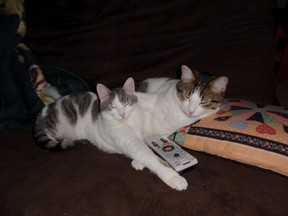
I accidentally branded it in them because I would always say it then pet them in a loving way (scratching behind the ears and what not that makes them purrr). When I say their name I get one reaction, when I say buddy I get the cuddle bug- so I stuck with it, it actually became a habit!
It's the same with the long SSSSSt sound when they do something wrong, if you do something only when they're bad, they react to it like their in trouble- even when I'm saying psst but because I saw something on a commercial I thought was ridiculous!
Although animals tend to "imprint" not brand you or your sounds/lingo- people are more sophisticated at it. - I segmented there for a second, I digress :)
All of this is assumed if you’re speaking the same language.
Think about this next time you’re out and about, or the next time you meet someone. Try to remember all the lingo you've heard. Just hanging out with lawyers long enough you start to pick up on the terminology.
It's not only the use of words in context of a specific group (i.e. if you use law terminology and can quote the law, people often "assume" your a lawyer, know a lawyer, hang out with lawyers, or are in law school) but also the fluidity of it's use.
Being able to grab the right words on time and in the right context is essential.
One dimension of why two people get along is that they understand each other. Language is often a catalyst, a conduit to expediting that connection more quickly. It breaks down barriers, and starts building and strengthening rapport because people generally want to be around those who understand them, talk like them, and like things they like.
When around others who may not be lawyers but whom respect lawyers (i.e. they may want to go to law school or have a legal battle going and may think you can help), you may be filtered through a whole different perception if your using the right lingo (so be careful what you wish for, you just might get it, use the lingo but don't misrepresent yourself!).
Many actively listen for how you talk, how you move, even the details of how you shake hands, how firm your grip is, and so on to determine if your an imposter or "one of them".
In some groups you can't even fake this because there are things they say/do that are not done at the dinner parties and if you don't do them, you stick out like a sore thumb.
Think of how secret societies live a double life, one in private that is full and an amazing amount of body language, language, terminology and the like are shared, and one where they are in public and "hide" all those nuances that give their secret society away.
Funny enough the movie "Fight Club" comes to mind! First rule of fight club- nobody talks about fight club!
I'm talking about micro-movements and formatting of your portfolios, leaving an extra button undone on your shirt, looking uncomfortable in clothing when in the other place you often wear loose fitting robes, things like that. It's the little things that give you away, or that give THEM away! It's also these little things that tell them if your in or an imposter- either that your doing or not doing.
School Kids Do This All The Time
It's not about deception when you use language as a rapport tool, it's about bridging the gap between being a stranger and being a friend, or someone who can start and keep a stimulating conversation going.
As you do this with your new friend, you will automatically start picking up on how they talk, how their friends talk (if you’re introduced) and so on. Think about the cool kids in high school and how they'd often invent a language just for their "click" and the whole click used it. If you didn't they knew you weren't "cool". If you used it incorrectly, they also knew- even if you were new and from another school, they could tell if you were "in" at your last school by your body language, confidence, and the very words and terminologies you used.
When I meet someone new in person I'm actually pretty quiet (not to be confused with shy). I spend a great deal of time letting the other person talk, letting them be themselves, and I encourage them by asking them about themselves.
It takes me a while to really get to know someone because I am very careful with who I trust and call a friend. I have a specific ideology of what that is and I'm careful not to lead anyone on so if they, for example, seem like they are not very honest with themselves or are living a lie (trying to be something they're not) I don't want to associate with them.
The reason is that you become who you hang out with. Your friends tell you who you are really- and I want to be someone confident, realistic, and honest- so I pick my friends who are the same. This is not how I pick my acquaintances, as that's a whole different category I call "temporary friends" or friends that don't have a major impact on me on a daily basis.
I can "know" people who are all the things I don't want to be- even interact with them from time to time, but if they are in my inner circle, meaning I actually see them in person alot, interact with them daily or weekly, then they have more power through redundancies to affect me or more accurately "infect" me.
You can't always hang out with someone lazy, for example, without starting (eventually) to rationalize why you want to be lazy yourself. In time it forms a habit of rationalizations you make for "just this once I'm going to blow off work and watch TV" and so on.
When I meet someone I want to know everything possible about them so I can assess if they will be someone I want in my inner circle or someone I want to maintain only acquaintance status with (or not know them at all).
Since the only way to quickly assess this is to let them talk and read into their language, body language, and what kind of things they say, what phrasing happens habitually (i.e. talking bad about others or themselves often shows they have low self esteem) that's what i do.
An amazing tool for figuring out an online person's real personality, if you can access it, is reading their entire facebook timeline. There's much more information than is seen on the surface!
Why encourage someone to talk about themselves and why will they 99.9% of the time?
Because we are our own favorite subject
People love to talk about themselves (not in a narcissistic way) because it's the one subject we know well, we don't have to guess and are quick to switch gears on anything related to us.
If you talk about subjects you know enough to run a conversation with but that has "holes" in it, you risk being caught off guard.
Confidence in conversation comes from your quick wittiness and ability to feel like an authority on something.
People stick to things they know and shy away from things they don't because they are worried about it damaging their credibility.
Trying To Help Can Often Lead To Making Them Feel Inferior
It Actually Takes A Confident Personality To Advice/Help Graciously For What It Is
This is also why when someone starts talking about how cool their job is then someone else starts to probe deep into that job (but they're new at their job and everyone before them was ignorant of what that job was and didn't probe in, they tend to get comfortable "bragging"- but when someone probes in that knows what their talking about (and are trying to assess that you do too) they often bring up things that are beyond that persons education or ability to answer quickly and with some wit. This makes them uncomfortable. It shouldn't, but it does- it's basic insecurity of not fitting in or losing their stature.
The same goes for people who start talking about themselves and seem to know more than you do about the topic. We tend to get nervous because if the focus is put on you at some point you may feel dumb when you can't answer the question.
When I talk to people I'm hyper aware of their education level on any given topic by how the talk about it, how much information they give up, the words they use, and how fast they can access it (do they have to think about it to answer a simple question? and so on).
If I detect that they are more bragging than educated about a topic, I don't want to make them feel uncomfortable by spouting out all I know about it or all the things they don't know.
I want the person I'm talking to, to feel like they are the central focus, the authority on their own conversation. This helps you build rapport with someone in a group your hanging out with that you don't yet know but that is talking a lot about something you know a lot about.
I don't need validation of them knowing I know more than they do about it if I think I do- I'm fine just knowing what I know and unless asked, I keep my mouth shut and just elaborate on their knowledge within the boundaries that keep them feeling good about their self.
That's how you keep people liking you. You want someone to hate you call them on what they don't know or make them feel inferior!I used to think I was offering information.
Personally I LOVE when people upstage me in sharing information and awareness/education- I love learning. I never compare it to what I know or link my competence to what I don't know. I see it as a gift when they educate me- but most people don't see unsolicited advice that way!
To some this is demeaning because they think your acting like you know it all and their stupid- the reality doesn't matter, perception is the true reality. It's not that they are dumber or less aware, it's just that in some cases I did my homework, I got research happy and learned a great deal- but they don't see it that way.
This is often a self esteem issue, but if you want to build rapport- learn to spot which type they are as quickly as possible. If you do give a piece of advice, see how they react to it- do they seem defensive? If so, don't offer any more unless they specifically ask- and even then don't offer too much. It's also different if your in mixed company or alone with them. Some people love to hear advice when nobody else is around but get offended if you give it to them in a crowd!
A true intellectual will want to learn from people they talk to and aren't offended if someone knows more, they're more excited that they're learning something they didn't know than worrying about what people may think of them because they got the answer wrong! The reality is that nobody is really paying much attention to you unless you become defensive- then they notice- oh boy do they notice.
The other solution if your on the flip side (someone is acting like a know it all and upstaging you in front of your peers which may embarrass you) the solution is simply to be confident in not knowing, don't be afraid to not know something or to admit that this person is way smarter than you in whatever subject.
It's ok to be wrong or to not know something- in fact most people in the group may not know it themselves and your admitting you don't know while maintaining your confidence- saves them from feeling bad or worrying that someone will know that THEY don't know. I think it's silly to worry about others thinking your dumb, because in reality it's an illusion.
You must keep in mind that for those that are delusional - this is their reality and rapport cannot be built if you step on their toes or try to "school" them about it. In these cases the best way to school them is by example- show that it's ok by being the catalyst, the example through your actions- that speaks volumes trust me.
The truth is likely your not the only one in the group that feels upstaged or out witted in the conversation and by your admitting they know a lot you don't and you respect them for it- you make the others in the group feel better (I'm not alone, thus I'm not embarrassed).
It shows confidence in yourself to the smarter person (in that area) and people want to be acknowledged so instead of them wanting to be petty and "smarter" what they really want is respect and acknowledgement.
Conclusion
I hope you made it this far into this "book" of information and I hope you find some value in my words.
These are my experiences and insights, your results may be different but the goal should be in chasing awareness and learning how to apply your own brand to rapport building skill sets. This isn't just one skill-set, it's many that work synergistically together.
I wish you luck!
This is another AMAZING book that changed how I interacted with people. (and anything else by Leiberman!)
The premise is not controlling people but rather about 100 win-win scenarios that use rapport and psychology
 | Get Anyone to Do Anything: Never Feel Powerless Again--With Psychological Secrets to Control ... The legendary leader in the field of human behavior delivers the national bestselling, must-read phenomenon that changed the rules. Utilizing the latest advancements in human ... St. Martin's Griffin |
You might also like
Decoding - Life Isn't Fair - And Who This Really AffectsThis phrase is heard all too often, here's what it means and why people shoul...
Gravity is my godSome people see the light, and take that as a deity. I prefer a god with gra...
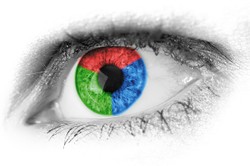

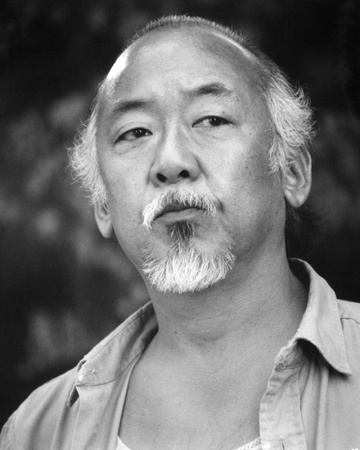





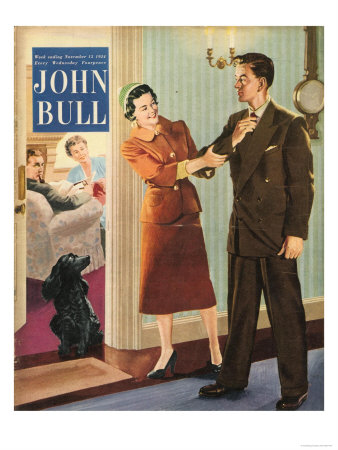
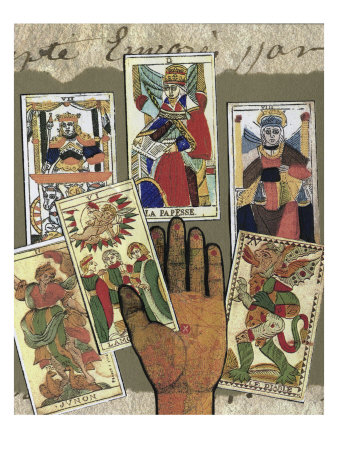
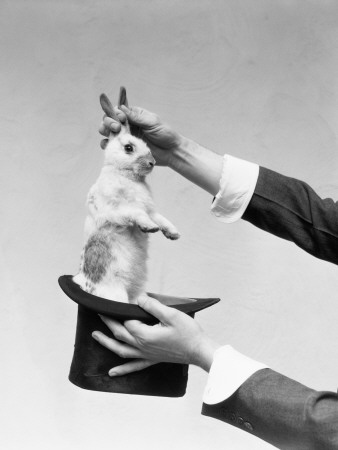
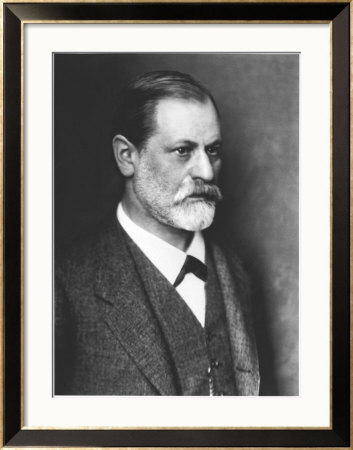
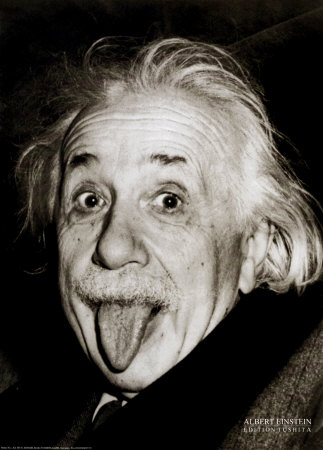
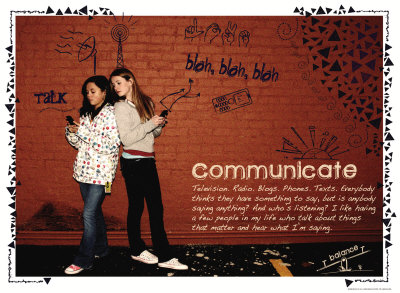






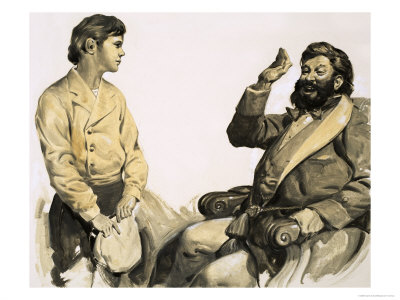
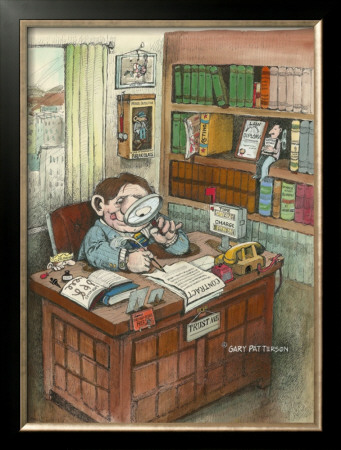

 Making Money Online is Not Impossible, It Just Takes Putting Yourself Out Thereon 09/25/2012
Making Money Online is Not Impossible, It Just Takes Putting Yourself Out Thereon 09/25/2012
 Thump. Looking For True Loveon 09/28/2012
Thump. Looking For True Loveon 09/28/2012
 Cure Tooth Decay Ramiel Nagel And Dr. Weston Price's Nutrition and Physical Regeneration Bookson 03/17/2013
Cure Tooth Decay Ramiel Nagel And Dr. Weston Price's Nutrition and Physical Regeneration Bookson 03/17/2013
 Cleaning Wool Rugs - Excellent Results At Homeon 03/10/2013
Cleaning Wool Rugs - Excellent Results At Homeon 03/10/2013



Comments
This is loaded with information. This is really excellent!
Thank you, I'm honored, especially coming from you- my first experience on this site (your profile extension wizzie)- and I was blown away at your formatting and writing, so I tried to be just as good... this is the result you jump started by inspiring me so :)
Jerrico, I will, I will give it a go so I can participate on the cruise. Klingon is the next language on my agenda. I can imagine the process you described to complete this page, sounds hauntingly familiar. Shifting ones paradigm is a crucial ingredient to any good writer, I found this most refreshing and do hope many many others read it, I'll imagine them doing so. I also enjoyed the other new releases you've just launched. Content is amazing!
oh and before I forget- don't forget to get that Klingon CD rom so when we're all on that cruise we can speak Klingon and blow away all the other guest... what did they say? I can't put my finger on it but that language sounds both familiar and odd at the same time, cool too... person next to them will say, oh that's Klingon (and jump in surprisingly speaking it too)- doh!
I have the book/dictionary but I have a feeling the CD is better
Dak Choooooy choo (beam us up- star trek 2: the wrath of khan) haha
Wow Katie!,
What an awesome compliment to my work! I spent 18 painstaking hours perfecting this- I wrote it, ironically, in about an hour in one shot- then cut it up and put it into a wizzle, I kept adding, subtracting, removing redundancies.
By the time I was done, me and this articles rapport was waning LOL I couldn't stand to look at it another day (until I got over that it exhausted me to format)- hearing that you enjoyed it really in one swoop- removed all that work, making it so worth it to put it in there. Thank you for sharing it, I think these are things everyone should know both for protection against manipulation, and for a skill set in learning how rapport works (and the tarot for that matter!)...
More to come- much more... I write only on fascinating (to me anyway) topics... i find psychology incredible because it's the minds gym and comprehension all in one!
well, Well, WELL, I must say you have blown me away, just as you set out to do. This word rapport is a very powerful and useful thought. I feel strongly these tools of which you speak are something we all posses if we can, and we can, allow ourselves to let go and let intuition be our intention only sprinkling a few other bits and pieces into the mix, leaving ego at the way side. It never really works as a helpful component. Very well done indeed. I'm headed over to the forum to share this RIGHT NOW, did you note my body posture and language as I conveyed my vote of confidence? Great to read your work, well worth the wait, never ever rush to publish, now I understand what you meant and do admirably advise you stick to the plan.